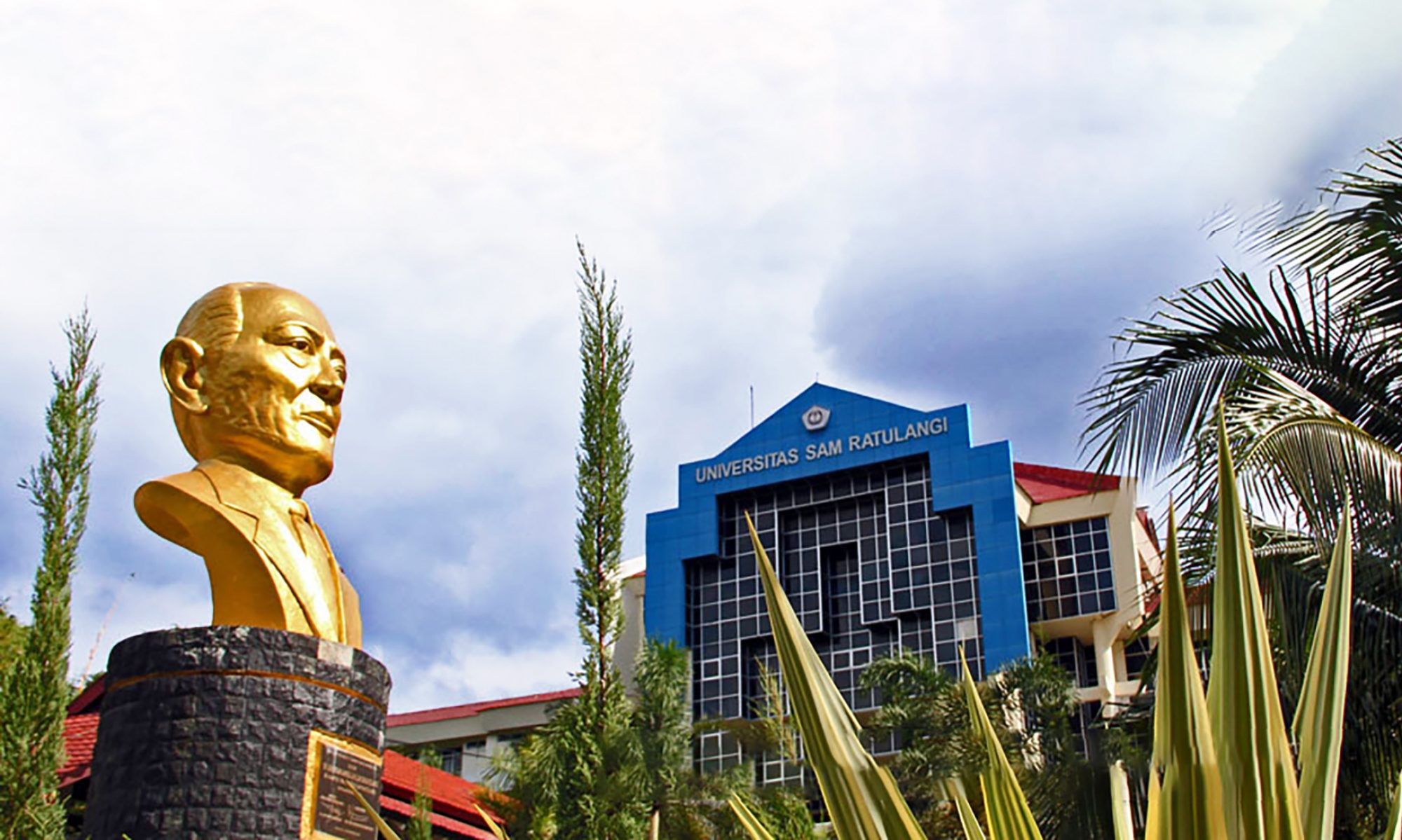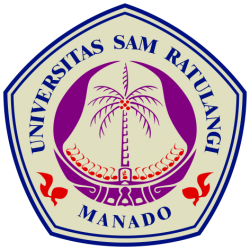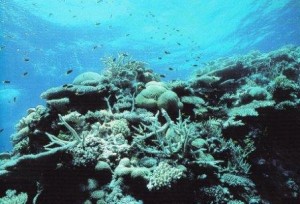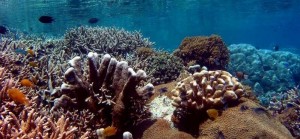[metaslider id=609]
IPCRBC: Admissions
Prerequisite of students to apply:
- Students have to hold a bachelor degree in the area of natural sciences (any of these: biology, pharmaceutical biology, paleontology, microbiology, and chemistry with biological background). There will be a set of requirement to be met during the application (to be define later; including passing an examination once the student has sent the application form).
Further information about Admission 2016
IPCRBC: Facilities
Research facilities
- Laboratory: The laboratory is equipped with sophisticated facilities including PCR, HPLC, AAS, UV Spectrophotometer and other portable equipment for field work.
- Boats and diving equipment: The program is provided with vessels for field work and diving equipment (SCUBA).
- Likupang Marine Field Station: Faculty of Fisheries and Marine Science has a marine research station at Likupang which is about 60 kms from the main campus. The research station offers facility for students to stay while they are doing their activity during courses and final project.
- Research Areas:
Bunaken National Park: Besides the marine station, students have access to study in coral reef areas which are closed to the main campus. Bunaken National Parks extends over an area of 890.65 km² of which only 3% is terrestrial, including Bunaken Island, as well as the islands of Manado Tua, Mantehage, Nain and Siladen. This park has attracted many scientists and divers all over the world because of its high marine biodiversity. The island is around 30mins by boat from downtown Manado City. For those who are willing to work on mangroves (as one of supporting components of the coral reef), there is a possibility to work in Mantehage Island which has a large mangrove coverage. (> go to About Bunaken)
Lembeh Strait: Lembeh Strait is another choice for doing research on marine biodiversity. Situated around 60kms from the main campus (on the other side of Minahasa Peninsula), this area offers a unique biodiversity of marine organisms. One research station belongs to Oceanography Institute of Indonesia is also situated at the area.
Library and internet access
There are two main libraries accessible to students, the library in the parent institution (Faculty of Fisheries and Marine Science) and library at the Aquatic Science Study Program. Free internet connections for students and lecturers can be accessed within the main campus.
[Background] – [Profile of the Institution] – [Objectives] – [Program] – [Expected Outcomes] – [Prerequisite Students to apply] – [Courses] – [Fees] – [Facilities]
[metaslider id=1200]
IPCRBC: Fees
Fees for Full-time International Program #
Full-time students are assessed full-time tuition fee for each semester. The program will be a two-year program, and extended length of study will be charged on semester basis. The fees for the full program will cover the following components:
|
Annotation |
Amount |
|
USD 2,880 |
|
USD 400 |
|
USD 880 |
|
Total payment* |
USD 4,160 |
* Excluding expenses for thesis research
Fees for Part-time International Program #
Students classified as part-time will be charged per semester. The fees will cover the following components:
| Annotation |
Amount |
|||
| Sem. 1 | Sem. 2 | Sem. 3 | Sem. 4 | |
|
USD 720 | USD 720 | USD 720 | USD 720 |
|
NA | NA | USD 400 | NA |
|
NA | NA | USD 880 | NA |
|
Total payment |
USD 720 | USD 720 | USD 2,000 | USD 720 |
# subject to change
[Background] – [Profile of the Institution] – [Objectives] – [Program] – [Expected Outcomes] – [Prerequisite Students to apply] – [Courses] – [Fees] – [Facilities]
[metaslider id=1200]
IPCRBC: Courses
Each course includes 16 meetings (contact time) and meetings comprise lectures, seminars, practical work, and field excursion. Some courses will be given in block courses, especially those from foreign lectures. As the study program focuses on organismal biology and ecosystem in order to better understand functionality of coral reefs and adjacent ecosystems as the base for understanding threats, how to conserve coral reef and use them in a sustainable way, the courses are designed as follows:
Semester 1 (August – December):
- Tropical Marine Biology (IPA-5106; 3 credits). Course content: anatomy, functional morphology, reproduction, phylogeny and evaluation, also including small excursion.
- Tropical Marine Biodiversity and Ecology (IPA-5105; 3 credits). Course content: genetic diversity, species diversity, community and ecosystem diversity, threats to marine diversity, global climate changes, fishing and other exploitation, species introduction/invasive, also including small/daily based excursion in the surrounding area.
- Oceanography (IPA-5108; 3 credits). Course content: plate tectonics, abiotic factors, tides and tidal currents, Indonesian throughflow, water masses.
- Research Methods (IPA-5107; 3 credits). Course content: experimental design, parametric and non-parametric analyses.
- Community Service 1 (IPA-5047; 0 credit). Students have to participate in a program organized by Aquatic Science Study Program on a regular basis (at least once every semester).
Semester 2 (February – June):
- Scientific Writing and Presentation (IPA-5213; 3 credits). Course content: scientific writing and presentation (how to communicate the ideas through writing and public speaking in seminar).
- Coral Reef Management/Marine Resources Management (IPA-5214; 4 credits). Course content: coral reef ecosystem, conservation, management of marine protected areas.
- Marine Pollution and Health of Marine Fish (IPA-5215; 3 credits). Course content: ecosystem health assessment, land-based pollution, ecotoxicology, species indicators.
- Tropical Mariculture (IPA-5216; 3 credits). Course content: Southeast Asia mariculture practices, sustainable mariculture, fish disease.
- Coastal Indigenous Resilience (IPA-5218; 3 credits). Course content: the practice of traditional wisdom in better managing the ecosystem.
- Community Service 2 (IPA-5058; 0 credit). Students have to participate in a program organized by Aquatic Science Study Program on a regular basis (at least once every semester).
Semester 3 (August – December):
- Advanced Special Course (IPA-5319; 3 credits). Course content: a comprehensive two-week study in Marine Station in Likupang (in North Minahasa Regency) or in Bunaken Island based on courses 1 and 2 (in the first semester), small projects; can also include a diving course (for those who are going to do underwater research).
- Comparative Study (IPA-5320; 3 credits). Course content: comprehensive field study in a place of interest (particularly research station) outside Manado (for example Bali or Lombok).
- Literature Review (IPA-5359; 3 credits). Course content: will be based on individual interest for the final project (thesis).
Semester 4 (February – June):
- Scientific Publication (IPA-5063; 1 credit)
- Practical Research Education/Thesis (IPA-5465; 6 credits).
[Background] – [Profile of the Institution] – [Objectives] – [Program] – [Expected Outcomes] – [Prerequisite Students to apply] – [Courses] – [Fees] – [Facilities]
[metaslider id=1200]
IPCRBC: Students Eligibility
- Targeted students. Students for the program are expecting to come from all Coral Triangle countries and neighboring areas, including students from other areas who are willing to study about Indo-Pacific coral reef biodiversity and conservation.
- Prerequisite of students to apply. Students have to hold a bachelor degree in the area of natural sciences (any of these: biology, pharmaceutical biology, paleontology, microbiology, and chemistry with biological background). There will be a set of requirement to be met during the application (to be define later; including passing an examination once the student has sent the application form).
- Eligibility. The candidates must have completed 16 years of education and hold a bachelor degree in Natural Sciences with an average GPA of >3.0 and an English proficiency exam result of TOEFL (?500) or IELTS (?5.5). Selection of the candidates will be done in two stages: documentary and interviews. After passing the documentary selection, the candidates will be interviewed using an electronic communication method.
[Background] – [Profile of the Institution] – [Objectives] – [Program] – [Expected Outcomes] – [Prerequisite Students to apply] – [Courses] – [Fees] – [Facilities]
[metaslider id=1200]
IPCRBC: Outcomes
The program will produce graduates who are capable of managing the coral reef ecosystem and it is expected that the program will accommodate research program related to the marine biodiversity in and around Indo-Pacific regions. A mutual collaboration between the student host institution and Sam Ratulangi University is expected to continue after their study.
[Background] – [Profile of the Institution] – [Objectives] – [Program] – [Expected Outcomes] – [Prerequisite Students to apply] – [Courses] – [Fees] – [Facilities]
[metaslider id=1200]
IPCRBC: Program
The targeted students will be from Asian countries (especially the countries within the CTI program) and students from other countries who are interested in studying Indo-Pacific coral reef biodiversity and conservation. The program is intended for master students from two different categories:
- Full-time Students. Students in this category are students who will be involved in the regular program (a two-year program) and they have to meet all the requirement given by the host institution (which is Aquatic Science Study Program of Sam Ratulangi University). Application for the program is available from February to June and commencement time is in July.
- Part-time Students (Visiting students).This category refers to students, from other institution who are willing to spend at least one semester in the international program to study one or more particular subject/s offered by the institution. Students in this category will have to meet a particular requirement by the host institution. A marking or grading system will be established to accommodate the need of students from different universities (for example, there will be conversion for those with ECTS). Application for the program has to be submitted at least one semester prior to the commencement (January and July).
[Background] – [Profile of the Institution] – [Objectives] – [Program] – [Expected Outcomes] – [Prerequisite Students to apply] – [Courses] – [Fees] – [Facilities]
[metaslider id=1200]
IPCRBC: Objective
The main objective of the program is to set up a study center through establishing an international master program on the biodiversity and conservation of Indo-Pacific coral reef. The program is intended to educate people on the basis of biodiversity and conservation of coral reef and its adjacent environment (seagrass, mangrove and riverine).
[Background] – [Profile of the Institution] – [Objectives] – [Program] – [Expected Outcomes] – [Prerequisite Students to apply] – [Courses] – [Fees] – [Facilities]
[metaslider id=1200]
IPCRBC: Profiles
The International Master (M.Sc) Program on Indo-Pacific Coral Reef Biodiversity and Conservation (IPCRBC) is under Aquatic Science Study Program in Graduate Program of Faculty of Fisheries and Marine Science. The parent institution, Faculty of Fisheries and Marine Science, was established in 1965 and until now has 6 undergraduate study programs. The graduate program has been accredited a Grade-A (excellent) in the beginning of 2015 by the National Accreditation Institution Board of Higher Education in Indonesia.
[Background] – [Profile of the Institution] – [Objectives] – [Program] – [Expected Outcomes] – [Prerequisite Students to apply] – [Courses] – [Fees] – [Facilities]
[metaslider id=1200]



